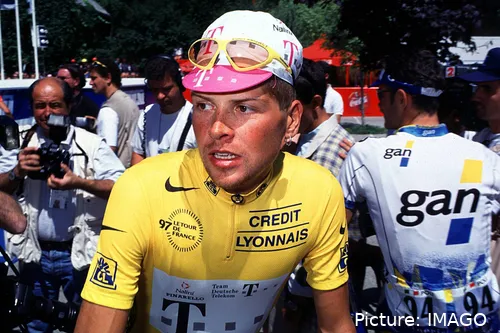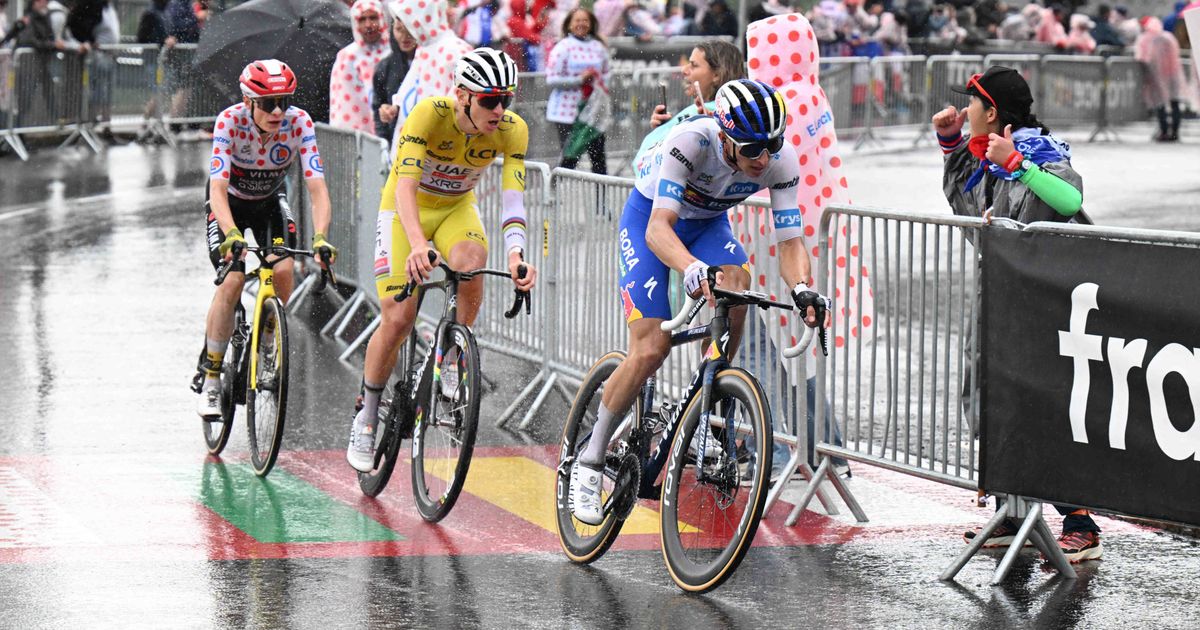In an era where the margin for error at the very top of GC racing is vanishingly small, simply still being there with those two when the race explodes is already a significant marker.
Owning his own path – not Jan Ullrich’sLipowitz’s emergence has inevitably reopened old German storylines. Any homegrown Grand Tour contender is still viewed through the prism of Jan Ullrich, and the temptation to badge him as the “next Ullrich” has been obvious. He understands the sentiment, but is in no mood to be turned into a nostalgia vehicle.“It is an honour when people make those comparisons,” he said of being linked to Germany’s only Tour winner, before drawing a firm boundary. “At the end of the day, I am Florian Lipowitz. That is why I do not want to focus too much on it. Of course I am pleased, but I am my own person.”
That line matters. It is not just a polite disclaimer, but a signal of how he wants his career to be framed: less about reliving a past era, more about establishing a new benchmark on his own terms. In a media environment quick to accelerate every promising Grand Tour rider into “future winner” territory, that insistence on identity and pacing stands out.

Jan Ullrich is the only German to have won the Tour de France
From watching Pogacar on TV to following him in the mountains
One of the more revealing parts of the podcast was how candid Lipowitz was about the shock of suddenly finding himself at the sharp end with the riders he had previously only seen on screen.
“I always watched Pogacar and a Vingegaard on television. I would never have expected that I would one day race with them and reach that level,” he admitted. His coach, he added, was far less surprised by the leap: “My coach said it did not surprise him. For me, it certainly did.”
That contrast says a lot about the dynamic around a rising GC rider. From the outside – and from within the performance staff – progression can look linear, even inevitable. From the rider’s own perspective, the moment you realise you can actually live with Pogacar and Vingegaard on the decisive climbs is still a psychological shock. Lipowitz’s openness about that gap between internal disbelief and external expectation underlines how fast his curve has steepened over the past year.
Welcoming the hardest battles
Crucially, none of this realism translates into resignation. Lipowitz is not interested in dodging the sport’s dominant figure; if anything, he actively wants the toughest possible starting grid.
“I am happy when I get to race against him (Pogacar),” he said. “You want to achieve good results yourself, of course, but if you have the chance to race against the best rider in the world, then I am happy to take that opportunity… there is always still second and third place to fight for.”
That is a competitor’s mindset rather than a defeatist one. He is not promising that the Pogacar–Vingegaard duopoly will be broken any time soon; he is recognising that in the current era, the first step is to become a stable presence on that next tier, contesting podiums, not headlines. Only once that layer is secured does the conversation about yellow genuinely begin.
For now, Lipowitz looks like the latest rider capable of anchoring that group – pragmatic about where he stands, clear about who currently sets the standard, but quietly turning a Tour podium and a string of big-stage performances into a platform for whatever comes next.
